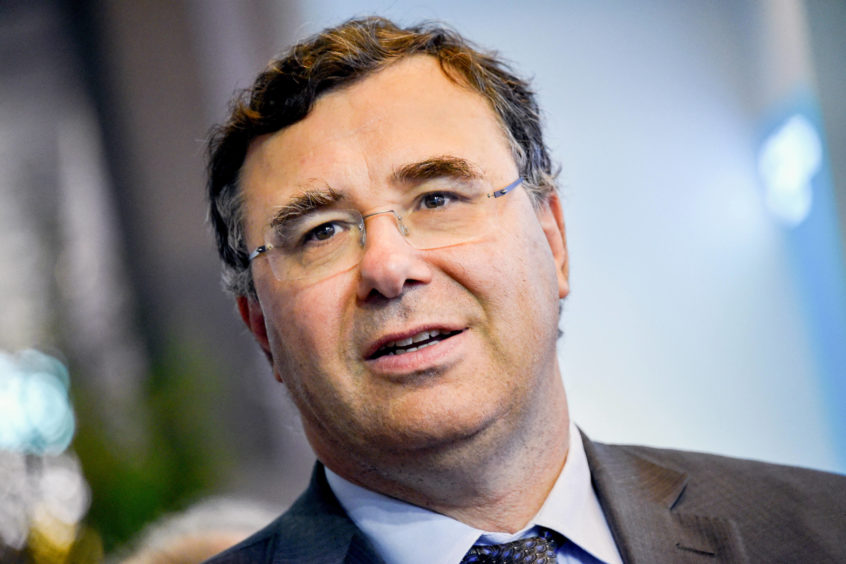
The bosses of some of the world’s biggest oil companies said crude prices are likely to keep rising because a lack of investment will curtail future supply.
The chief executive officers of Royal Dutch Shell and TotalEnergies joined major commodity traders and banks in predicting that oil could go as high as $100 a barrel, although they also said volatile markets could drive prices back down again.
The lack of investment is “going to exacerbate supply and demand tightness as the economies pick back up again, and then in time we’ll see supply pick up and rebalance,” Exxon Mobil CEO Darren Woods said at the Qatar Economic Forum Tuesday. But “in the shorter term probably higher prices” are more likely.
Trading house Trafigura Group said oil could top $100 a barrel over the next year. Bank of America also forecast this week that prices could jump to that level and Goldman Sachs Group said it doesn’t rule it out. Oil has climbed 44% this year as widespread vaccinations increase mobility and boost demand. Benchmark Brent crude was little changed at 2:55 pm on Tuesday in New York at $74.90 a barrel.
Global oil markets had one of the most turbulent years in history last year with the coronavirus pandemic sending prices crashing. But economies in the West are growing again, roads in Europe and the US are starting to fill up, and more Americans are flying. While that could drive prices higher in the near term, the energy transition means oil consumption could start to plateau and eventually decline in the longer term.
The energy shift means there hasn’t been enough investment in oil and gas projects and that could push prices higher, Qatari Energy Minister Saad al-Kaabi said at the same event. BP CEO Bernard Looney said earlier Tuesday that rising crude is helping the company’s energy transition plans and generating better cash flow and returns for shareholders.
There’s “quite a chance” of reaching $100 a barrel, “but we could see again in coming years some low prices,” TotalEnergies CEO Patrick Pouyanne said. “We’ve been accustomed to volatility.”
Recommended for you
